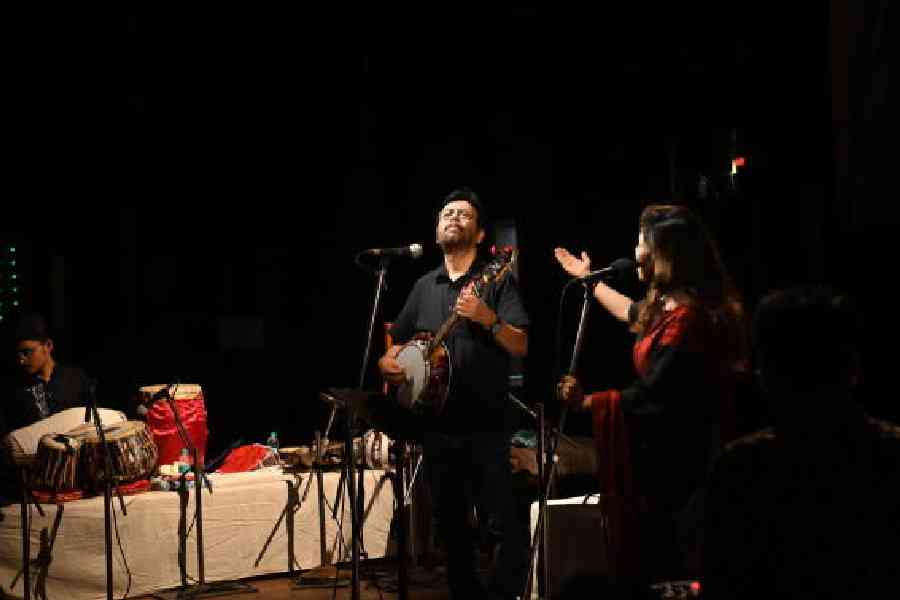The father-daughter duo of Swapan Basu and Shimlli Basu wove magic with their melodies at a folk music performance in the city that left the audience enthralled. Hosted by recording company Bhabna, the music programme held on September 13 at Rabindra Sadan was an immersive experience for music lovers, especially those with a penchant for folk songs. From rare and unfamiliar songs to popular tunes, the Basus had the audience clapping to their beats for the entire duration of their performance.
The distinguishing aspect of Swapan Basu’s performance was his ability to captivate the audience with anthropological trivia related to the songs he presented. “Anthropology has always been very close to my heart. Through my research in folk music, I have learnt how one can identify a particular clan or a race through their music. I find this very interesting. I used to go from village to village in Meghalaya, learning about the different musical traditions of each tribal group. This is what I try to bring to my performances,” he told t2.
A theatre artiste by profession, Shimlli Basu highlighted the influence of loknatyo (folk theatre) in folk music and how the two are entwined. “To me, theatre and music are the same since I have grown up in an ambience where folk music was a very intrinsic part. I learnt from my father that a folk song is not only about its tune or lyrics. It is also about the people of the region where the folk song has originated from. It is important to understand the people of that region and their stories. When I play a role in any drama, it feels that each character is a song in himself/herself. I don’t differentiate between theatre and music,” said Shimlli.
The Basus sang folk songs on myriad themes. From Bhatiyali songs (of boatmen) like Pari dhoro and Munai sadagar to songs about the woe of Partition like Ami jabo amar deshe and Desher bari chhaira ami ailam bideshe and even several tribal songs in dialects spoken by the respective clans like a Khasi song Da poite, a Santhali song Purabo duar and Jhumur songs (tea labourers’ songs) like Jokhon phool and Raja jaay, the duo presented a delightful programme, receiving applause and song suggestions from the audience throughout the evening.










